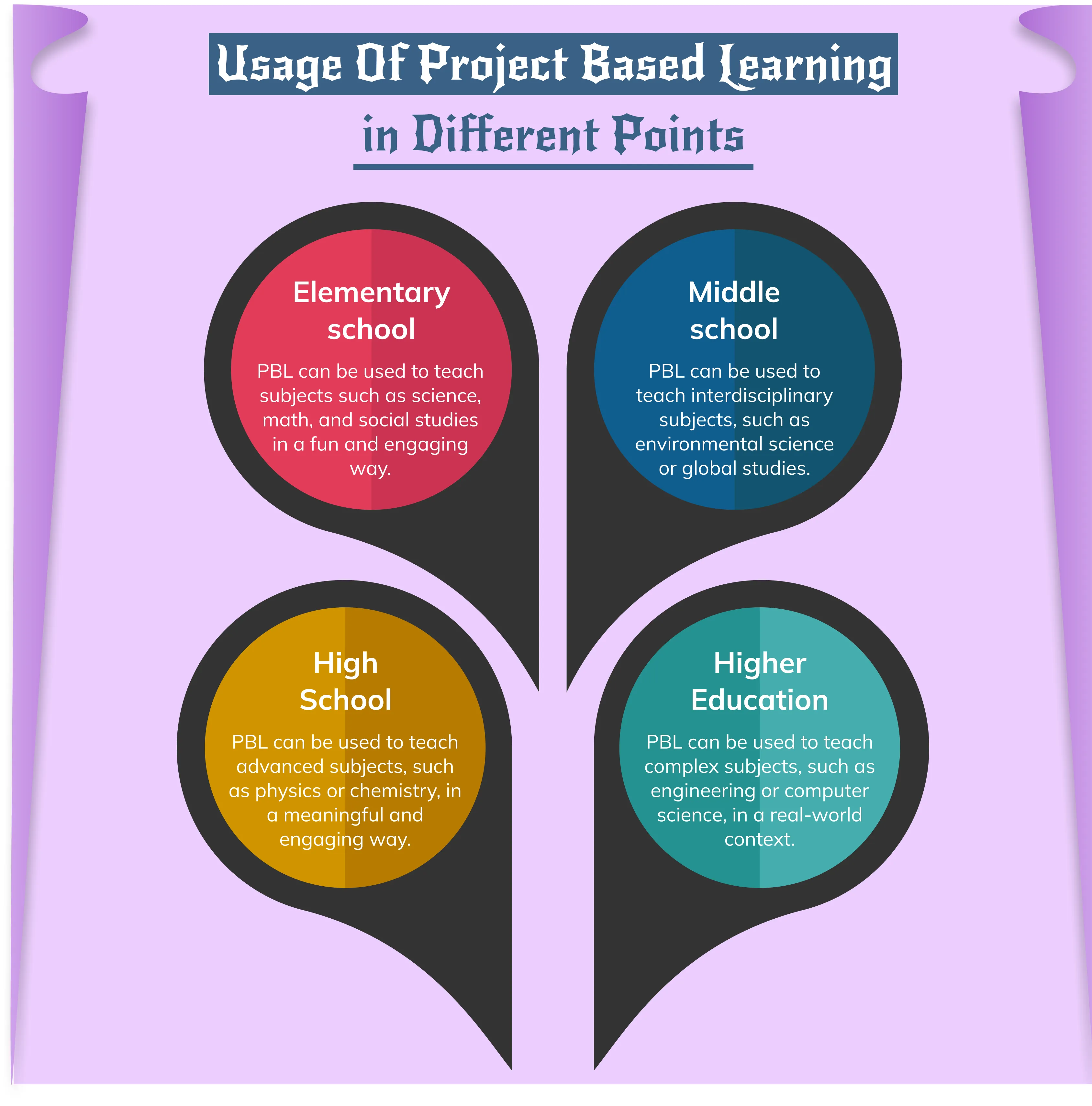
Project-based learning (PBL) is an innovative approach to education that emphasizes real-world problem-solving and collaboration. It involves students working on a project over an extended period, where they explore and engage with a complex question, challenge, or problem. Learning Management Systems (LMS) are web-based software platforms that enable teachers to manage and deliver digital learning content, such as PBL experiences, to students. In this blog, we will discuss how to create effective project-based learning experiences using an LMS, including its meaning, objectives, importance, benefits, and usage in different points. Additionally, we will examine how Entab's experiential learning assets can help a student and a school in providing these things.

What is Project-Based Learning (PBL)?
Project-based learning is an educational approach that encourages students to engage in a real-world problem-solving process. It involves students working on a project that is based on a complex question or challenge that requires critical thinking and collaboration to solve. PBL projects are designed to be challenging and meaningful to students, and they often include multiple disciplines and subject areas.
Objectives of PBL
The primary objective of project-based learning is to help students develop critical thinking, problem-solving, and collaboration skills. It enables students to apply their knowledge to real-world situations, which can help them develop a deeper understanding of the subject matter. Additionally, PBL can help students develop self-direction and motivation, which are essential skills in today's workforce.
Importance of PBL
PBL is essential because it provides students with a unique and meaningful learning experience. It enables students to apply their knowledge to real-world problems, which can help them develop a deeper understanding of the subject matter. Additionally, PBL can help students develop essential skills, such as critical thinking, problem-solving, collaboration, and self-direction, which are essential for success in today's workforce.
PBL has numerous benefits for both students and teachers. Some of the benefits include:
Improved critical thinking skills: PBL requires students to think critically and analytically, which can improve their problem-solving skills.
Increased engagement: PBL is more engaging than traditional lecture-based learning, which can lead to increased student motivation and participation.
Collaborative learning: PBL emphasizes collaboration, which can help students develop teamwork skills that are essential in the workforce.
Real-world application: PBL enables students to apply their knowledge to real-world problems, which can help them develop a deeper understanding of the subject matter.
Increased retention: PBL can lead to increased retention of information, as students are more likely to remember what they have learned when they have applied it to a real-world problem.
Usage of PBL in different points
PBL can be used in different points of education, from elementary school to higher education. It can be used to teach a wide range of subjects and can be adapted to suit the needs of different learners. Some of the ways that PBL can be used include:
Elementary school: PBL can be used to teach subjects such as science, math, and social studies in a fun and engaging way.
Middle school: PBL can be used to teach interdisciplinary subjects, such as environmental science or global studies.
High school: PBL can be used to teach advanced subjects, such as physics or chemistry, in a meaningful and engaging way.
igher education: PBL can be used to teach complex subjects, such as engineering or computer science, in a real-world context.
Entab's Experiential Learning Assets
Entab's CampusCare LMS is an excellent tool for educators who want to create effective project-based learning experiences for their students. It enables teachers to design and deliver PBL experiences that are engaging, meaningful, and aligned with learning objectives.
Here are some of the ways that Entab's experiential learning assets can help a student and a school in providing effective PBL experiences:
Collaborative Learning: CampusCare provides teachers with a range of tools to encourage collaboration and teamwork among students. Teachers can set up group projects, assign roles and responsibilities, and track the progress of each team member.
Real-World Application: CampusCare enables teachers to design PBL experiences that are based on real-world problems and challenges. This can help students develop a deeper understanding of the subject matter and apply their knowledge to real-world situations.
Customizable Curriculum: CampusCare allows teachers to customize the PBL experience to suit the needs and interests of their students. Teachers can choose the subject matter, design the project, and set the timeline for completion.
Assessment and Evaluation: CampusCare provides teachers with a range of tools to assess and evaluate student progress. Teachers can track student participation, monitor project completion, and provide feedback to students.
Accessibility: CampusCare is accessible to students from anywhere, at any time, through their devices. This enables students to work on PBL experiences at their own pace and on their schedule, which can improve student engagement and motivation.
Conclusion
Project-based learning is an innovative approach to education that emphasizes real-world problem-solving and collaboration. LMS platforms, such as Entab's CampusCare, are excellent tools for educators who want to create effective PBL experiences for their students. CampusCare enables teachers to design and deliver PBL experiences that are engaging, meaningful, and aligned with learning objectives. Additionally, it provides teachers with a range of tools to assess and evaluate student progress, which can help improve student outcomes. By using CampusCare's experiential learning assets, schools can provide their students with a unique and meaningful learning experience that prepares them for success in the workforce.